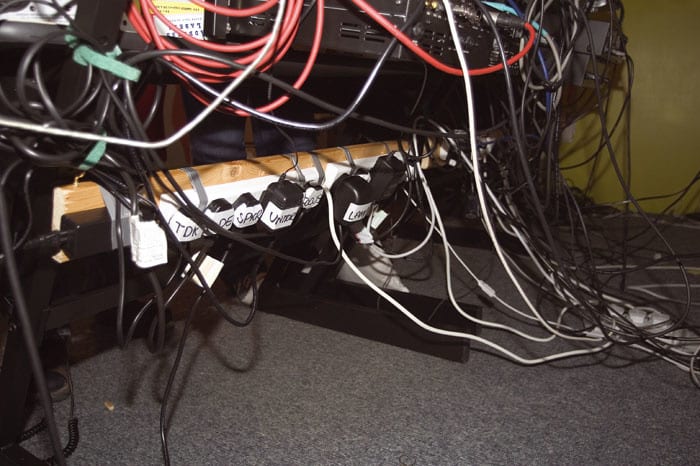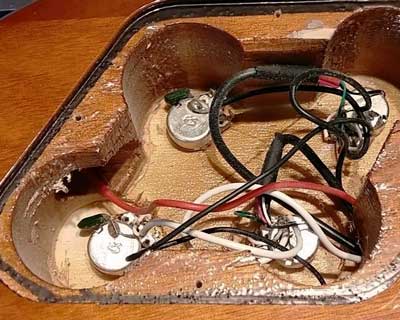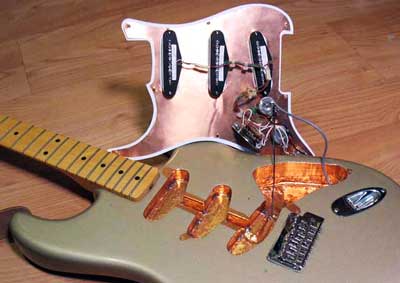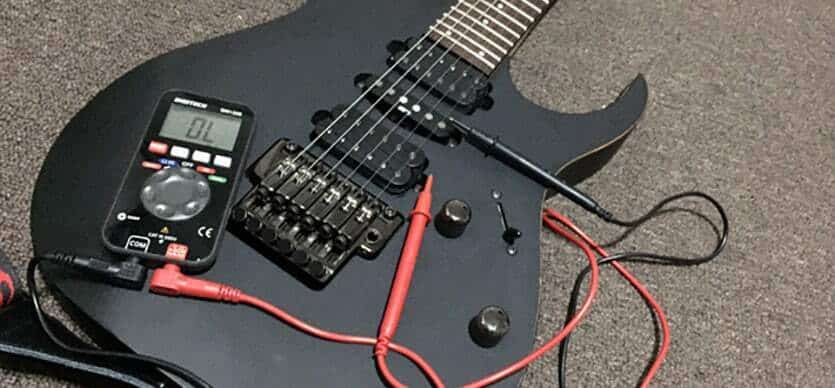Contents
Overall, based on the reports about “guitar hum stops when I touch jack”, the one responsible for the issue is likely a ground loop and you should consider checking out the wires, shielding the components and so on. In the case that the issue persists, it is a good idea to contact pros for assistance. Read to the end if you wish to learn more about what causes the humming and the way to put an end to it.
Guitar Hum and What Causes It
When your guitar hums, there’s something going on that needs checking out. Though it can be easily alleviated by simply touching the jack (or wire or the control knobs), how troublesome could it be? Instead of focusing on your music, you’re always distracted by the noise of the humming guitar. So, why does your electric guitar hum?
There are several reasons why your electric guitar hums. The most common, especially if the noise reduces when you touch metal parts of your guitar, is the problem with the ground loop.

If you are using faulty or inappropriate cables, it’ll also generate guitar hums. Similarly, your amps, speakers, pedals, and other devices that are connected to your guitar can also contribute to the noise. Lastly, everything in your home or studio that utilizes electricity emits an electromagnetic field, which can contribute to the annoying noise and humming of your guitar.
Why Guitar Hum Stops When I Touch Jack?
It has been briefly touched earlier that if you experience guitar hum, and it goes away when you touch the jack, it’s the problem of the ground loop. This usually occurs due to lack of grounding, which may be a result of bad wiring, soldering, or the guitarist needs to have proper earthing. So, it’s important that you should know the basic workings of your electric guitar.
In your electric guitar, the strings, bridge, and jack are connected in a ‘ground loop.’ A ground loop happens when two or multiple devices are connected to one common ‘ground’ through different paths – it’ll create hum or noise. In addition, the human body picks a lot of noise/signals, which may contribute to the hums projected. So, when you touch the strings or the jack of the guitar, you are now connected to the ground loop, hence, the reduction/elimination of the noise.
It was observed even before that the guitar hums stop when the jack or the strings are touched. Hence, manufacturers soldered a wire on the bridge. When the player touches the strings or any grounded part of the guitar, the noise will immediately be suppressed.
Eliminate Ground Loop
Though guitar hums just go away whenever you touch any metal part of your guitar, there are more effective ways to eliminate them. The humming could be because of poor wiring or soldering. So, one best way to get rid of it is to check the wiring inside your guitar and see if they are properly soldered.

Yet, if you are in doubt, what you can do is to do shielding in every component of your guitar cavity. A guitar with good wiring doesn’t need shielding. However, in order to prevent future issues with humming, you need to do this.
The concept behind shielding is Faraday’s cage. The shield will prevent interference between the signal of your guitar and all the electronic devices around you. This means, instead of merely soldering the components together, they are now connected by one shield. Usually, the shielding used is copper foil.

If you don’t want to open your guitar, you can use a noise gate to put the hum to a minimum even if you are not touching the strings or the jack. Another way is to get a noise suppressor. However, before adding either of these two, know that they may somehow impact the sound output you will get. Hence, you must know what and how to use them to get a wonderful output without noise.
Humming Persists?
There are instances that even if you touch the jack or the strings, the guitar noise increases, or it becomes worse. This is becoming serious, and you really need to have a look at it or bring it to someone who can troubleshoot the problem for you.
When you have a new guitar, it’s seldom that you will have this kind of problem. However, when you get a refurbished guitar or when you just got your old guitar from the shop, there are tendencies that you’ll have these issues. Here are a few ways to get into the root cause of the unwanted noise generated.
Determine the Type of Hum
Check out these two examples of guitar hum. The first one is 60Hz hum, which is usually caused by the electronic devices and cables around. It’s also called the main hums (in the US it’s 60Hz, outside the US it’s 50Hz). If this is the hum you’re hearing, you must determine which device influences such humming.
The second one has 120Hz, which is usually generated by the ground loop problems. If you get this hum, then, you need to seriously do something with your guitar cavity components.
Check Amps and/or Pedals
If you have set the guitar’s volume to zero and you still get that annoying hum, you need to check the amps and other connected devices. The common reason for this is the gain pedal or your amp is set to high gain. If you are playing at high gain, chances are the noise will be amplified. Try lowering the gain of your amp, or you can use either a noise gate or noise suppressor pedal.
Conclusion
Guitar hum/noise isn’t only annoying, it’ll mess up your recording and your live performances. Don’t let this noise prevent you from doing great on stage with your guitar. Determine what causes the humming.
If you’re like most people who are confused and asked, ‘why guitar hum stops when I touch jack,’ it’s the problem of the ground loop. If, indeed, this is caused by the ground loop, proper soldering or even shielding the components of your guitar can save you.

Yet, if something else is causing the guitar hum, it’s time for you to do some troubleshooting. This article has given you a few ways to do it. But, if you are unsure, it’s better to bring your guitar to the nearest guitar shop and have a professional do it for you.

Hi music fan! I am Jeff. Hope that you enjoy some stuff I shared here in my personal blog.
About myself, Currently I am in charging as Artist Manager/Music Supervisor at 72 Music Management. I did managed album to Grammy Award in 2017 with 7 Nominations from 2014-2020 and had the opportunities to work with : A.J. Croce, Blind Boys of Alabama, Bobby Rush, Dom Flemons, Dustbowl Revival, Sarah Grace
Governor of the Memphis Chapter of The Recording Academy is one of a award that I am lucky to achieved.
